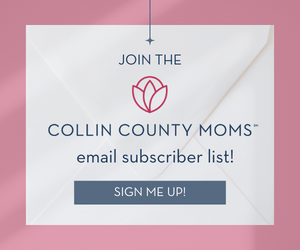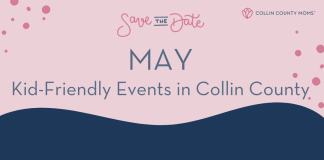A while back, the principal at my school presented about social media and shared that his family had a purpose statement for social media.
I had never thought about this.
Did I have a purpose statement for using social media? Why did I use social media?
In my head I instinctively told myself I used social media to stay connected with family and friends, but it didn’t quite feel accurate. If that was really true, why did I spend hours staring at my phone every day?
Since then I’ve thought a lot about my purpose for using social media, but I didn’t spend much time thinking about the purpose of social media in general.
That changed after I watched Netflix’s new documentary, The Social Dilemma, which explores the purpose and business model of social media, the algorithms that keep us glued to screens, and the impact it’s already had on the social fabric of our world.
First of all, I think regardless of how old you or your kids are, The Social Dilemma is worth an hour-and-a-half of your time. There are some parts where I wish they had chosen less ominous music and some of the dramatized family scenes will come across as cheesy to teens, but it’s filled with insightful interviews and it poses relevant questions for anyone who uses a device. It’s rated PG-13, so use discernment when watching with your kids, but it’s been a helpful way to start some open conversations about devices in my own home.

There’s a lot more in the documentary than what I can cover in a short blog post, but I’m exploring the:
3 Main Topics Discussed in The Social Dilemma
The Business Model
The documentary spends a significant portion of time interviewing leading experts in the field about why social media was created and the business model that makes it possible to stay free for users. Essentially, someone is paying for us to use social media and email, so if it’s not us, then who? Tristan Harris, a former Google employee who helped develop Gmail, puts it this way,
“If you’re not paying for the product, then you are the product.”
The services we use online are only free to us because advertisers pay for these services, and in turn, everything we do can be tracked. Even how long we look at something is tracked because this gives advertisers data. Our data is used to build models that predict our behavior and the best model rakes in the most money.
Algorithms
The business model that makes social media free for us, and collects data about us, then allows algorithms to be written that creates customized feeds for each of us, which then keep us glued to a screen longer and keeps the cycle going. These algorithms get smarter and smarter the more time we engage with a screen, and can suggest videos, ads, and posts that will appeal specifically to us. This is why when you search Google, you will get a different result based on where you are and what you’re interested in. It’s also the same reason you and a friend within the same circle of influence will have a different and customized feed on Facebook.
There are some great scenes about positive intermittent reinforcement, which is a design technique that uses our psychology to encourage us to refresh and stay on our screen, similar to why we enjoy slot machines. There are also a couple of interesting interviews about growth hacking, and how people hack our psychology and use these tactics to grow engagement. One expert shared that all the data collected about us allows algorithms to get “slightly better at picking the right posts in the right order so that you spend longer and longer in that product.”
The documentary also dramatizes algorithms with scenes of a three-man team at an “Algorithm Command Central.”
- Engagement works to keep someone on the screen,
- Growth works to nudge people to invite others to join, and
- Advertisement makes money every time someone clicks on an ad.
This three-man team works together to get a teenage boy’s attention and, by watching their conversations, it can help explain an abstract concept, the algorithm, to your children.
 Effects of Social Media
Effects of Social Media
The documentary briefly dives into the effects of social media on adolescent girls. There are a couple of interviews, but there’s also a dramatization with a preteen daughter. She posts a picture of herself and a negative comment about her ears leads to self-consciousness. Preteens might find this scene particularly cheesy, but it’s a great conversation starter about why and what preteen girls post to social media. If I have to remind myself at age 36 that my value doesn’t come from what others think of me, I can only imagine how much my little girls need to hear that, too.
Here are some of the troubling statistics on the effects of social media:
- There has been an increase in depression and anxiety for American teenagers which began between 2011 and 2013.
- The number of girls out of 100,000 in this country who were admitted to a hospital every year because they’ve cut themselves or otherwise harmed themselves was stable until around 2010, 2011. It’s now up 62% for older teenage girls. It’s up 189% for the preteen girls.
- There’s a similar pattern with suicide. The older teen girls, 15-19 years old, are up 70%, compared to the first decade of this century. The preteen girls are up 151%.
- The timing of the rise in each pattern points to the rise of social media.
My Social Media Purpose Statement
Recently I asked some teenagers to tell me one thing they would “un-invent.” The majority of teens I polled picked social media. I wasn’t too surprised because many teens I interact with feel a tremendous pressure to stay relevant on the latest social media by knowing when and what to post so that specific “whos” will see it. It’s exhausting and empty, but when I asked why they didn’t delete social media, they felt it would be too big a hit to handle socially.
It’s probably similar to why I don’t want to delete social media myself. I don’t want to miss the fun announcements, the big family news, or the sweet pictures of newborns. I don’t want to miss out. But I’m also not sure I can stay on without being manipulated since the people who created social media openly admit it’s continually evolving to manipulate us more and more.
I view social media as an opportunity to connect with others, to celebrate life together, and reflect Jesus’ love.
Here are some questions to use with your family when watching The Social Dilemma:
Questions to ask BEFORE watching
- What is most people’s purpose for using social media? (Not you, just people in general)
- Why do you think people invented/created social media?
- Do you see social media more as a resource and a tool that benefits you or do you see it as something else? Explain.
Questions to ask AFTER watching
- Do you think it’s possible to use social media without being manipulated? How?
- Which character do you act the most like? Which character do you relate to the most? What would you do differently if you were the mom? What would you do differently if you were the youngest daughter? If you were the dad, oldest daughter, or son?
- What concerns you the most about what we saw?
- How can I help you navigate social media now that we know what we know?
- What can we do as a family to keep our relationships more of a priority than our devices? What can we do on a daily, weekly, monthly, and yearly basis to help us accomplish this goal?
- What’s one thing you wish I knew about social media?
- What do you think about the following statement from Tristan Harris, a former Google employee who helped develop Gmail, “…we’ve moved away from having a tools-based technology environment to an addiction and manipulation-based technology environment. That’s what’s changed. Social media isn’t a tool that’s just waiting to be used. It has its own goals, and it has its own means of pursuing them by using your psychology against you.”
- What do you think about the following statement from Jaron Lanier, computer scientist, “We’ve created a world in which online connection has become primary, especially for younger generations. And yet, in that world, any time two people connect, the only way it’s financed is through a sneaky third person who’s paying to manipulate those two people. So we’ve created an entire global generation of people who were raised within a context where the very meaning of communication, the very meaning of culture, is manipulation.”
The documentary has a website that has information, interviews, discussion guides, and additional resources: https://www.thesocialdilemma.com/













